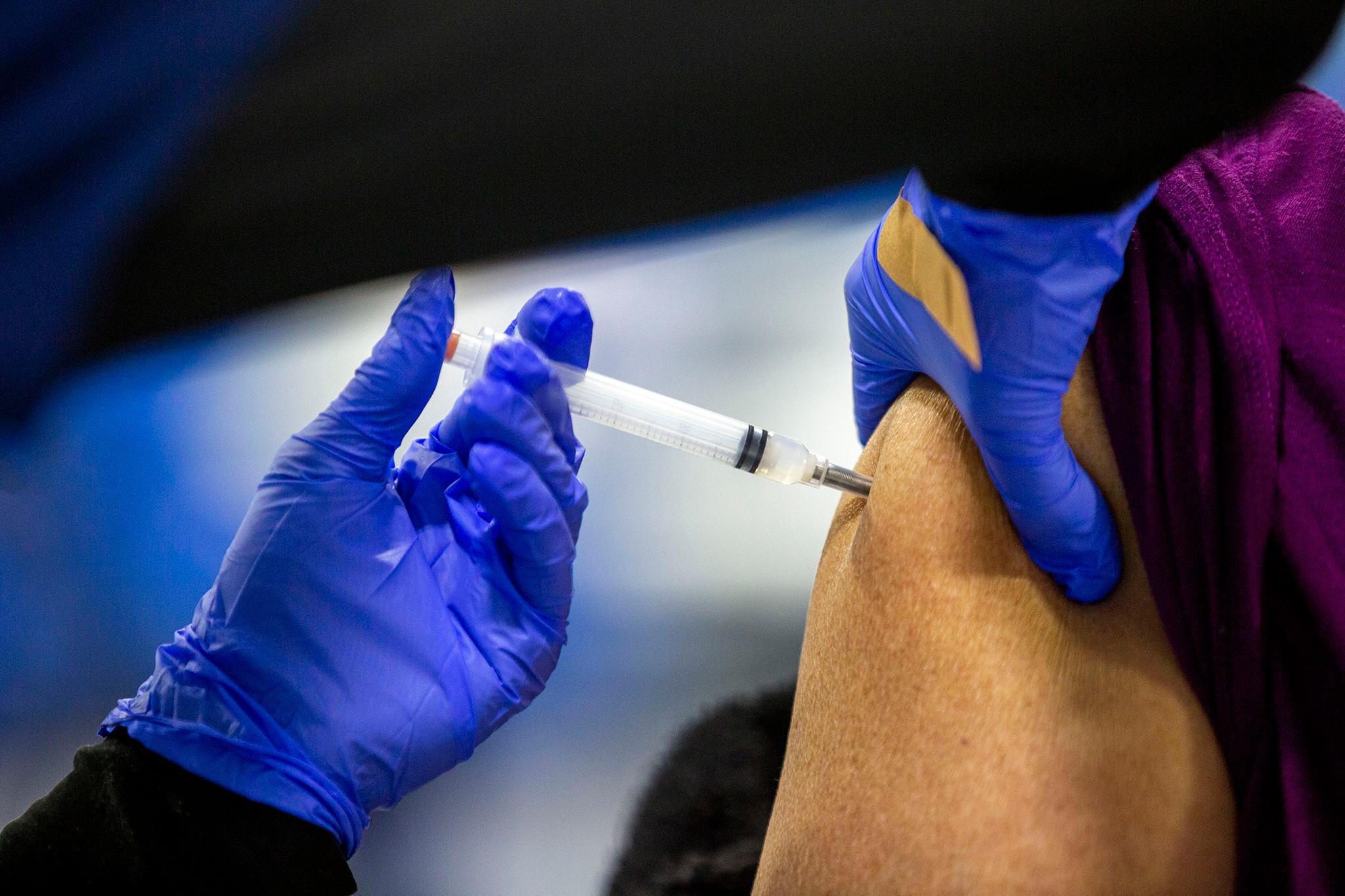
Gov. Jared Polis said he plans to add Coloradans aged 65 to 69 to the priority list for an early COVID-19 vaccination after the federal government recommended expanded eligibility for protection from the coronavirus.
The decision follows Polis’ earlier choice to make the vaccine available to anyone 70 and older, an announcement that triggered widespread questions and concerns because it was not accompanied by a distribution plan — or a sudden influx of vaccine to cover the more than 530,000 people in that age category.
On Tuesday, Polis said the state’s distribution network was coming together, and that he would formally announce the expansion of the age group soon.
“In the meantime, we want to focus on (70-years-old) and up,” Polis said. “And even within that group, of course, people in their 80s and 90s.”
The governor indicated he wouldn’t follow other CDC guidelines issued by the Trump administration Tuesday that recommend people with comorbidities that could make them vulnerable to COVID-19 also be moved up the priority list. Under the state’s current plan, those with pre-existing conditions will be part of Phase 2 of the vaccination program.
His office later issued a statement clarifying that the state would wait to formally expand eligibility until they had a better idea of how much vaccine would be arriving in Colorado and more concrete arrangements for distributing it.
"Colorado will not be making any changes to our vaccine program until we can get concrete details on supply quantities, timelines for receiving that supply and engaging our partners who are on the ground administering the vaccine," according to the statement issued after 6 p.m. "While the state is not making any changes today, the Polis administration is actively planning how we can scale up and expand eligibility in anticipation for receiving more supply of vaccines."
Can the state avoid the same confusion that followed the first time Polis expanded who was vaccine-eligible?
When the governor moved to expand eligibility last month to those 70 and older, some Coloradans and health providers complained the change was confusing and resulted in hospitals unfairly giving the vaccine to some people while others were forced to wait.
Health departments said they were forced to revamp their efforts to administer the vaccine.
“Sudden changes in guidance are a challenge to respond to in a timely way,” Linda Smith of the San Luis Valley Public Health Partnership wrote in an email. “The upside of that is that the changes ... have mostly been good ones.”
Polis said the number of hospitals and health clinics offering the vaccine will expand as well. He said people affiliated with a hospital system will be contacted on a randomized basis for the vaccine, or they can sign up. Some hospital systems, like UC Health, are taking appointments from people who aren't connected to a hospital.
Polis predicted all people 70-years-old and up who want a vaccine will get one by the end of February, depending on supply. He didn’t say when vaccines for those 65 and over would be complete.
He said that timetable could be moved up if, as the Trump administration indicated Tuesday, the federal government releases all of the doses it has on reserve. He also said the process would be accelerated if new vaccines from companies like Johnson & Johnson and AstraZeneca clear clinical trials and are approved for use.
Focusing on equity 'by income, by race, all the different factors'
The governor said a key focus of the state’s vaccine efforts will be a “fair and equitable distribution” of the COVID-19 vaccine.
“That means geographic, it means by income, by race, all the different factors,” he said.
He said community health centers, which serve low-income Coloradans, were ramping up their vaccine efforts.
Salud Family Health Centers, which operates clinics in 10 different communities in Colorado, said it was offering vaccines to older Coloradans in all of its clinics and was turning its focus from seeing patients to vaccinations.
"The downside to that is not as many people are getting primary health care,” said John Santistevan, Salud’s president and CEO. “But we are vaccinating more individuals, which we totally believe [is] the right thing to do and to save individuals' lives.”
The vaccine rollout remains slow, but officials expect the pace to pick up.
Polis said currently hospitals, health centers and public health departments will do the bulk of vaccinations but eventually, large-scale drive-through sites will take on much of the job and eventually at pharmacies and local doctors’ offices similar to the way the flu vaccine is administered.
Still, as of Tuesday afternoon, Colorado had received 516,750 doses of vaccine, according to the federal Centers for Disease Control and Prevention, but distributed just 238,766 of those, according to the state health department. That means more than half of the state’s allotment is here, but has not yet been used.
That places Colorado 12th among states ranked by the amount of vaccine they have effectively distributed.
Polis said some of that is the result of a slow rollout of the federal program to vaccinate nursing home residents and staff. But he also promised that the pace would pick up as more places, including healthcare centers and doctors offices, came on line to start vaccinating their patients.
Editor's Note: A limited number of CPR News journalists have started to receive vaccinations according to the state's prioritization of essential frontline workers.








